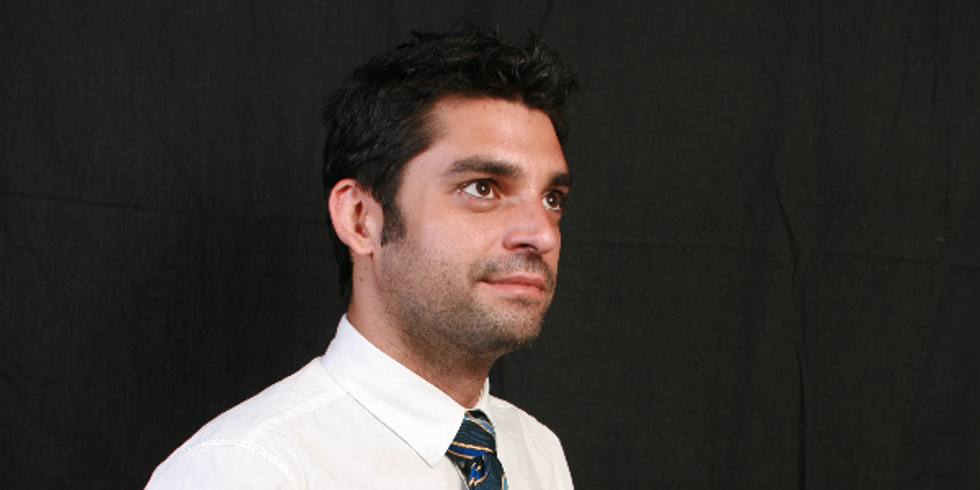
Success Tweet: Fake it 'til you make it. Appear to be self-confident and others will treat you as if you are. In turn, this will boost your self-confidence.
(This post is a continuation of the advice in the post on Success Tweet 53.)
The Key To Self Confidence
The old saying “fake it 'til you make it” is great career advice. If you are nervous about being accepted – in a new job or work group, by a new client or a community that you want to join – act as if you are confident of being accepted. Think, “Of course, I’ll be accepted.” This will give you the self-confidence to act in a manner that assume acceptance – even if you’re faking it at first – people will be likely to accept you. Here’s what one of my favorite philosophers and essayists, Ralph Waldo Emerson, has to say on this subject..."The virtue you would like to have, assume it is already yours, appropriate it, enter into the part and live the character just as the great actor is absorbed in the part he plays.”He’s right. If you play a part long enough, you become that part. Dottie Walters, who passed away on Valentine’s Day in 2007, is a great example of this. You probably don’t know who she was, but in certain circles – professional speakers – she was a legend. Walters was one of the pioneers of the speaking business. There is no aspect of it that she didn't touch or influence. Her book, Speak and Grow Rich, is one of the all-time best sellers in our industry. She also produced several audio recordings, books, booklets, as well as a news magazine for speakers, Sharing Ideas. You could even hear her being interviewed at 30,000 feet, as she often was highlighted in the airlines audio programs. Walters was a true icon. However, I’m not writing about her here because she influenced the lives and careers of many professional speakers, mine included. I’m writing about Walters here because she was one of the most optimistic people I know. She truly believed that she would be accepted in whatever she did. And she began by faking it 'til she made it. In 1948, she was a stay-at-home mother of two. Her husband’s dry cleaning business was on the verge of collapse due to a recession, leaving them with little income and $5,000 in debt – a sizeable sum in those days. Walters became a saleswoman for a newspaper; first ads, then circulation. She founded a business, Hospitality Hostess Service, kind of like Welcome Wagon. She built it into a four-office, 285-employee business with 4,000 continuous contract advertising accounts. She began reading everything she could about sales. She found that all of the books she was reading were written for men. She went to the library to find some books on sales that were written for women. When she asked the librarian where the books were for women in sales, she was told, “There are no women in sales, so there are no books for them!” That night, in her mind Walters saw a copy of a book that had not yet been written on the library shelf. The title was Never Underestimate the Selling Power of a Woman! She decided to write that book. It was the first book ever written for women in sales by a saleswoman. Walters expected that her book and her ideas would be accepted – and they were. Tupperware bought out the entire first printing, including a front section with a letter and picture of their president. They booked Walters to speak at their big rallies around the country. Many other direct sales companies followed suit. She went on from there to produce audio programs, and become one of the founding members of the National Speakers Association. Walters became a legend because she believed in herself. She acted as if she expected to be accepted – and she was. As Emerson suggests, she “played the role” of a super saleswoman for so long that she eventually became a super saleswoman. She assumed that her book on women in sales was necessary and would sell. She was right. Walters always looked at the bright side. She assumed she would be accepted even when she was selling newspaper subscriptions while pushing two children in a stroller. In The Power of Positive Thinking, Norman Vincent Peale makes an interesting point about being accepted and liked...
“The fact is popularity can be attained by a few simple, natural, normal and easily mastered techniques. Practice them diligently and you will become a well liked person. First, become a comfortable person, one with whom people can associate without a sense of strain. A comfortable person is easy going and natural. He has a pleasant, kindly, genial way about him.”This is great career advice and where acting as if you expect to be accepted comes in. When you expect to be accepted you don’t work too hard at getting people to like and accept you – you become a comfortable person; someone who is easy going and natural with a pleasant, kindly, genial way. The common sense career success coach point here is simple. Successful people build relationships easily because they are self-confident. They follow the career advice in Tweet 54 in Success Tweets, “Fake it 'til you make it. Appear to be self confident and others will treat you as if you are. In turn, this will boost your self-confidence.” Norman Vincent Peale suggests that the best way to act as if you expect to be accepted is to become a comfortable person – someone others want to be around. He says that comfortable people are easy going and natural. I agree with this career advice, when you are easy going and natural people sense that you expect them to accept you. While other people’s opinion shouldn’t be the entire basis of your self-confidence, feeling accepted by others is always a confidence booster. This post was originally published on an earlier date. Key to self-confidence image from Bigstock

 Bigstock
Bigstock Bigstock
Bigstock Bigstock
Bigstock


